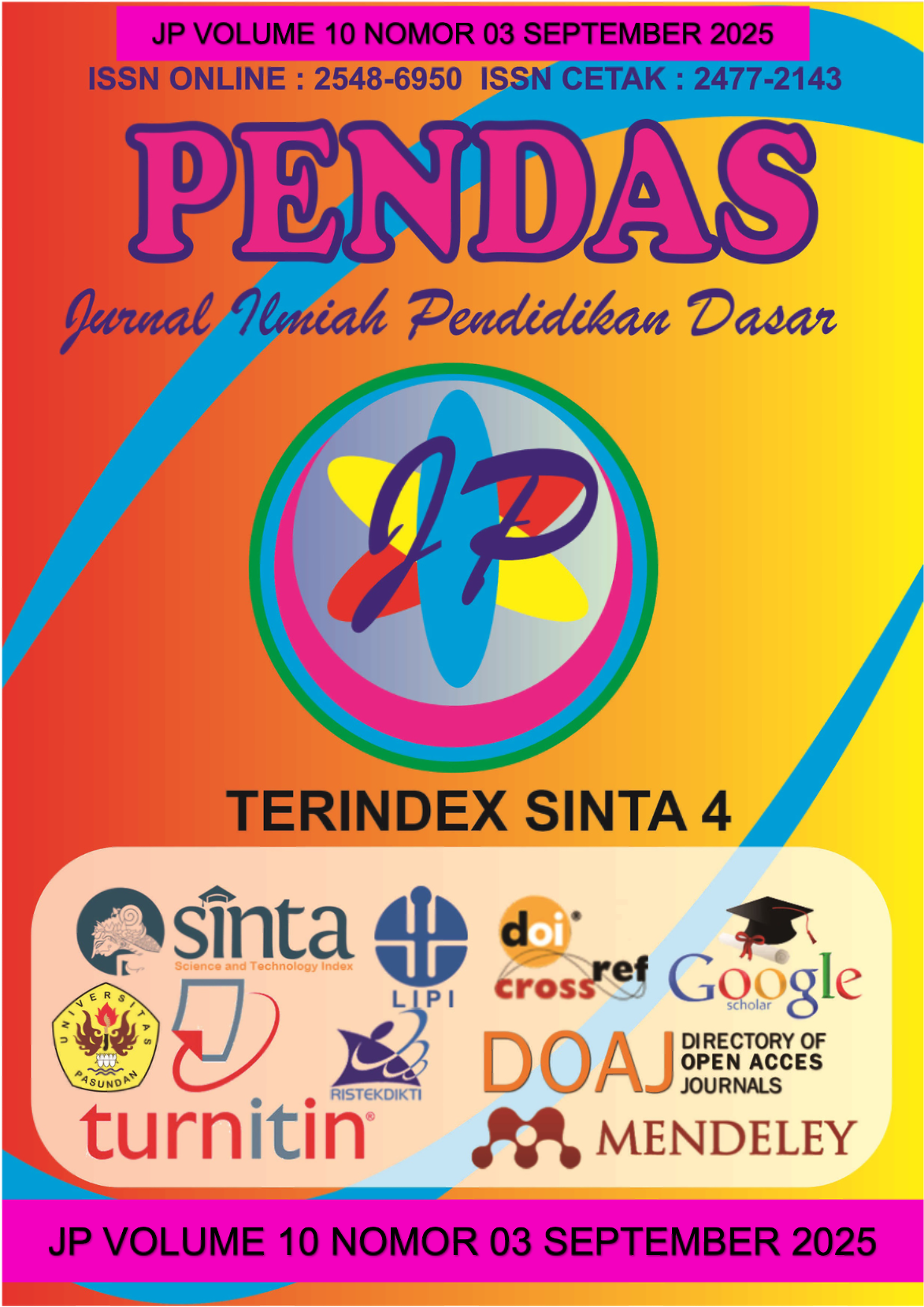UPAYA MENINGKATKAN AKTIVITAS DAN HASIL BELAJAR SISWA DALAM PEMBELAJARAN IPA DENGAN MENGGUNAKAN MODEL PROJECT BASED LEARNING DI KELAS V SEKOLAH DASAR
DOI:
https://doi.org/10.23969/jp.v10i03.31244Abstract
This research is motivated by the completeness of student learning outcomes in science subjects that have not been maximized, namely 27 students (63%) have not reached the KKM. This is because the learning process is still dominated by the teacher, students are less involved in the learning process. One of the efforts made is to update the learning model by using the Project Based Learning model. This study aims to determine the application of the PjBL learning model in science subjects, to determine the increase in learning activities and learning outcomes of grade V students of UPTD SD Negeri 1 Tanjungsari. The research method used is Classroom Action Research (PTK) with three cycles consisting of four steps, namely: planning, implementation, observation and reflection. This research was applied to grade V students with a total of 43 students. The results of the application of the Project Based Learning (PjBL) learning model increased in each cycle. In cycle I, 81.53% of the good category, cycle II, 87.69% of the very good category and cycle III, 94.61% of the very good category. The results of student activity also increased in each cycle. In cycle I, 67.57% of the moderate category, cycle II 79.81% of the good category, in cycle III 86.36% of the very good category. Student learning outcomes obtained during the action implementation process have increased in each cycle. In cycle I there were 23 students with a percentage of 53.49% of students completed, cycle II there were 37 students with a percentage of 86.05% students completed, and cycle III there were 38 students with a percentage of 88.37% students completed. This research shows that student learning outcomes reach the 80% classical success indicator. Based on the results of the study, it shows that the application of the Project Based Learning learning model in science subjects in grade V elementary schools can improve student learning activities and results.
Keywords: project based learning, science, activity, learning outcomes
Downloads
References
peningkatan sebanyak 37 siswa
tuntas dengan persentase 86,05%.
Pada siklus III mengalami
peningkatan yang signifikan sebanyak
38 siswa tuntas dengan persentase
88,37%. Penelitian ini menunjukkan
bahwa hasil belajar siswa mencapai
indikator keberhasilan dengan klasikal
80%.
DAFTAR PUSTAKA
Akmal, W. L., Suroyo S., & Asril, A.
(2024). Meningkatkan Aktivitas
Belajar Siswa Dalam Mata
Pelajaran Sejarah Dengan
Menggunakan Metode Diskusi
Kelompok Terbuka Kelas X Sma
Negeri 1 Koto Gasib.
JAMPARING: Jurnal Akuntansi
Manajemen Pariwisata Dan
Pembelajaran Konseling, 2(2),
764–773.
https://doi.org/10.57235/jamparin
g.v2i2.3137
Astuti, K. N. F., & Aprianti, F. (2023).
Peningkatan Hasil Belajar Ipa
Melalui Penggunaan Model
Project Based Learning Kelas V
Sdn Leuwimunding. Didaktik :
Jurnal Ilmiah PGSD STKIP
Subang, 9(2), 1959–1973.
https://doi.org/10.36989/didaktik.
v9i2.885
Daga, A. T. (2021). Makna Merdeka
Belajar dan Penguatan Peran
Guru di Sekolah Dasar. Jurnal
Educatio FKIP UNMA, 7(3),
1075–1090.
https://doi.org/10.31949/educatio
.v7i3.1279
Dinda, N. U., & Sukma, E. (2021).
Analisis langkah-langkah model
project based learning (PjBL)
pada pembelajaran tematik
terpadu di sekolah dasar menurut
pandangan para ahli (studi
literatur). Journal of basic
education studies, 4(1), 44-62.
Farhin, N., & Semarang, U. N. (2023).
Meningkatkan Hasil Belajar
Siswa SD melalui Pembelajaran
Berbasis Proyek : Studi Kasus di
SD Sukosari. 1(2), 132–136.
Febrianto, K. & Irianto, A. (2020).
Aktivitas Siswa Dalam
Pembelajaran Dengan
Menggunakan Media Flashcard
Di Sekolah Dasar. Buana
Pendidikan: Jurnal Fakultas
Keguruan Dan Ilmu Pendidikan,
16(29), 92–98.
https://doi.org/10.36456/bp.vol16
.no29.a2273
Downloads
Published
Issue
Section
License
Copyright (c) 2025 Pendas : Jurnal Ilmiah Pendidikan Dasar

This work is licensed under a Creative Commons Attribution 4.0 International License.



















